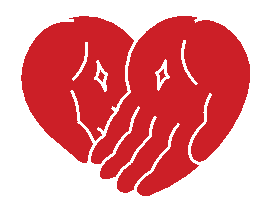MASHIAH FOUNDATION_CHILD SAFEGUARDING POLICY
PREAMBLE
This policy document was developed by Mashiah Foundation with the adaptation from Plateau State Safeguarding Children Policy and Save the Children UK Child Safeguarding policy. Mashiah Foundation is a faith-based organisation and committed wholly to working with children who are a gift from God, to ensure the protection of their rights and the attainment of their full potentials.
CODE OF CONDUCT
The policy provides for the provision of acceptable and unacceptable behaviours.
ACCEPTABLE BEHAVIOURS AND CONDUCT:
- The interest of the child should be paramount on any issue pertaining to the child.
- Be committed to creating a culture of openness and mutual accountability at work places to enable all child protection concerns to be raised and discussed where abusive behaviours are challenged.
- All children are equal irrespective of their gender, disability, ethnicity, sexuality, marital status or religion.
- To take steps to empower children by providing their views to be heard on acceptable and unacceptable behaviours.
- Encourage children to raise their concerns about staff or others safety.
- Ensure that risks of working alone are minimized by ensuring the ‘two adult’ rule and that they are always visible to others when working with children.
- Ensure physical contact at all times appropriate and not an invasion of the child’s privacy.
- Use positive, non-violent methods to manage children’s behaviour.
- Raise any concern of inappropriate behavior immediately.
- Comply with any investigation (including interviews) and make available any documentary or information necessary for completion of the investigation.
- All staff and representatives must report concerns that a child is a victim of child abuse or sexual exploitation immediately in accordance with organizational procedures.
- Cooperate fully and confidentially in any investigation of concerns and allegations.
- Undertake induction and training on this policy which is relevant and appropriate to their position.
- Identify, minimize and attempt to avoid potential situations of risk for children.
- Ensure when making images of children eg. Photographs, videos, that they are respectful, that the children are adequately clothed and that sexually suggestive poses are avoided.
UNACCEPTABLE BEHAVIOURS AND CONDUCT
- Behave physically in a manner that is inappropriate or sexually provocative or develop physical or sexual relationships with children that they interact, engage or work with.
- Spend excessive time with a child, away from others, behind close door or in a secluded area.
- Take a child to their home or elsewhere, visit a child at their home wherethey may be alone with that child, or sleep in the same room.
- Sleep in the same bed with a child or allow a child to stay overnight at their home unsupervised.
- Do things of a personal nature for a child that they could do for themselves or show favour to particular children to the exclusion of others (for example, promising a child gift or enticements).
- Engage in sexual activity with a child regardless of the age of consent (mistaken belief regarding the age of the child is not a defense).
- Be intoxicated (under the influence of alcohol or drugs) prior to assuming responsibility for any child.
- Hit or otherwise physically assault or physically abuse children (even where this may be culturally acceptable).
- Hiring or engaging of children for domestic or commercial work for consideration.
- Fondling, kissing, hugging or touching a child; inappropriately.
- Loosing moral decorum even when a child behaves seductively.
- Inappropriate use of language, appearance and actions when relating with children.
- Deceit of children.
- Act in ways that may be abusive or may place a child at risk of abuse.
- Use language, make suggestions or offer advice which is inappropriate, offensive, illegal, unsafe or abusive including being part of harmful traditional practices, spiritual or ritualistic abuse.
- Exploit children for their labour (e.g. Domestic servants) or for sexual purposes (e.g. prostitution) or trafficking of children.
- Take a child alone in a vehicle unless it’s absolutely necessary and with parental and managerial consent.
- Condone, or participate in, behavior of children which is illegal, unsafe or abusive.
- Act in ways intended to shame, humiliate, belittle or degrade children, or otherwise perpetrate any form of emotional abuse.
- Act as a negotiator in or assist the process of financial settlement between the family of the child victim of sexual abuse or exploitation and the perpetrator.
- No child must be stigmatized or discriminated on grounds of sex, age, health status, colour, background, religion, incapacitation and race.
Categories:
